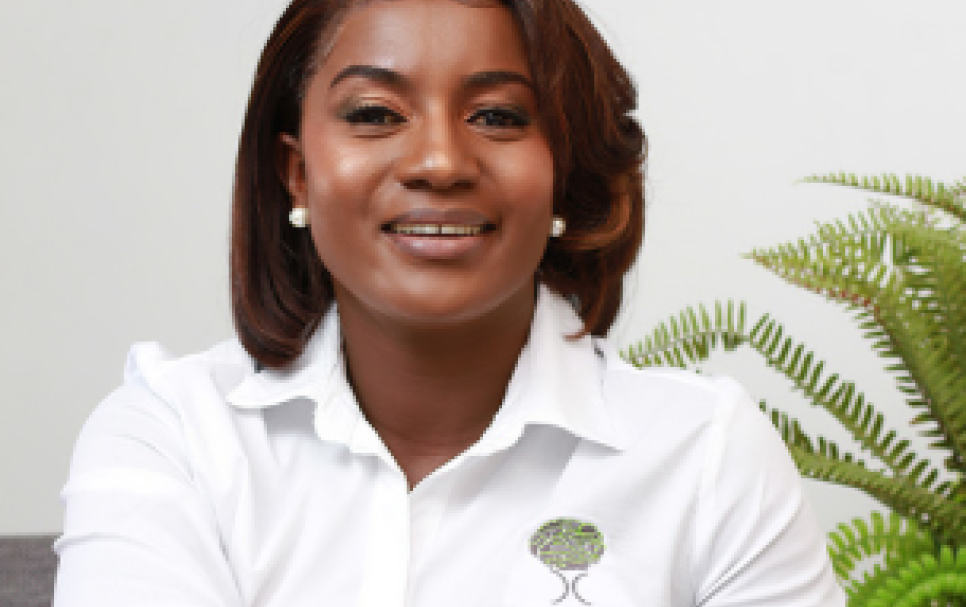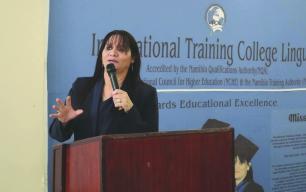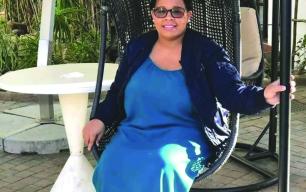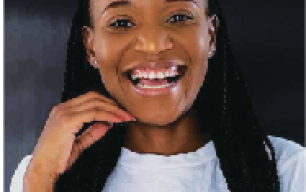Amushila speaks mental health, healing

- By Patience Makwele
Mental health practitioner and founder of NeuroBloom Psychology, DieMut Amushila, is redefining society’s perceptions of mental health, healing and human worth, with a mantra, ‘healing is possible’. Amushila is doing so by taking a deeper interest and desire to assist others lead meaningful lives through their diverse unique stories.
With 14 years of experience in the mental health field and a specialization in neuropsychology as well as neuroscience, Amushila started NeuroBloom to create what she described as “a space where people do not have to pretend to be okay, a space where healing can happen out loud.”
From her Windhoek-based practice, she leads a growing mental health movement rooted in understanding, empathy and cultural awareness.
Amushila shared that her work is shaped by years of witnessing the ripple effects of unhealed trauma. “Throughout various stages of my career, I have witnessed first-hand how untreated trauma quietly weaves through families, workplaces and entire communities,” said Amushila.
“The biggest challenge is that many still see silence as strength. In our black community many people were taught that suffering in silence is virtuous, especially men and older generations,” she added. “Others fear judgment or being labelled ‘mad’ or ‘weak’. Even some churches have unintentionally reinforced the idea that prayer alone should be enough.”
To shift this mindset, NeuroBloom goes beyond one-on-one consultations. Amushila and her team use public platforms such as radio shows, in-house workshops and branded awareness merchandise to normalise therapy and emotional literacy in everyday life.
“It is slow progress, but every open conversation is a win,” she stated NeuroBloom’s services extend to children, war veterans and the elderly, each with their own unique experiences and needs. “Healing is not one-size-fits-all. At NeuroBloom, we start by truly listening to the person in front of us. Maybe it is play therapy for the child, CBT for the veteran, or psychoeducation in their mother tongue for the elderly. We tailor every step to fit the person, not the other way around.”
She added that cultural identity plays a central role in the healing journey. “We honour traditions without letting them bury pain. Healing is not just about techniques or treatment modalities, it is about context. A conversation on the couch, a story shared in an indigenous language, a veteran finding purpose in mentoring youth, these moments weave resilience into communities.”
As a black female founder in a traditionally clinical and often rigid space, Amushila said leadership means showing up fully, without editing who she is. “It means leading by example, I do not always apply old clinical rules. I build trust by letting people be messy and fully seen.” Her work ranges from grassroots trauma support to high-level corporate wellness interventions.
“I show up as me, black, bold, unpolished. Some days, I train locals to support their communities, others, I sit with CEOs until they get it. Wellness is not a checkbox.” “Confidence is trusting the wisdom of my lived experience, even when academia dismisses it. In my work, it is charging my worth without guilt because I have learned not to shrink to make others comfortable.”
At home: “Confidence is unplugging to travel, saying ‘I need a break’ without guilt and refusing to let hustle culture steal my joy. Confidence is not about being unshakable, it is knowing my value is not tied to productivity or praise. I stand here, rooted in the truth that I belong, exactly as I am.”
Looking ahead, Amushila is clear about the legacy she wants to leave behind, which is a country where mental health care is not a privilege or a stigma. That vision includes reimagining how healing takes place in local communities.
“Picture schools in Windhoek where kids learn to name their emotions in Oshiwambo and Khoekhoegowab, not just English. Imagine veterans sitting in circles with teens, sharing stories that turn trauma into textbooks for resilience. “We are not just building a clinic. We are sparking a shift. Training grandmothers in Katutura to be trauma first responders.
Partnering with mines and factories to swap the ‘toughing it out’ culture for paid therapy breaks. I want us to be the proof that cultures can heal themselves when we listen.” To young women she says: “Do not wait. Start before you are ready because readiness is a myth. Use what is in your hands now. A phone, a notebook or your lived experience.”
- 355 views










Comments